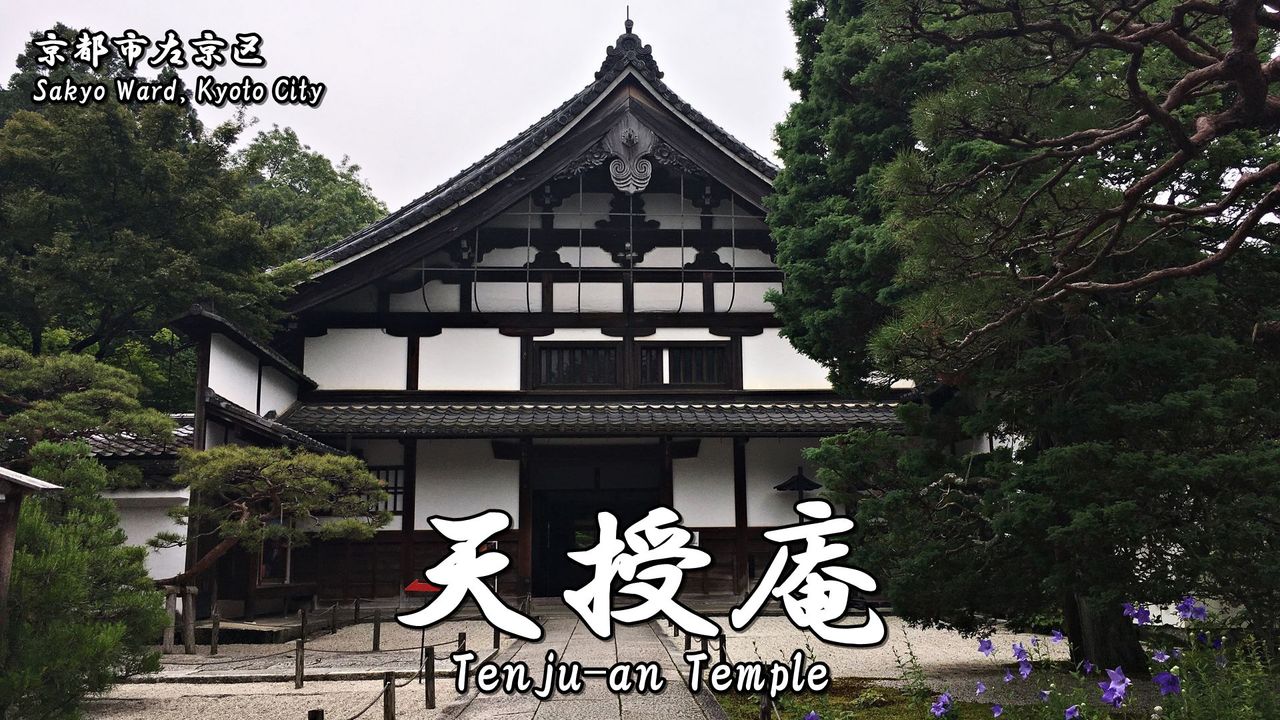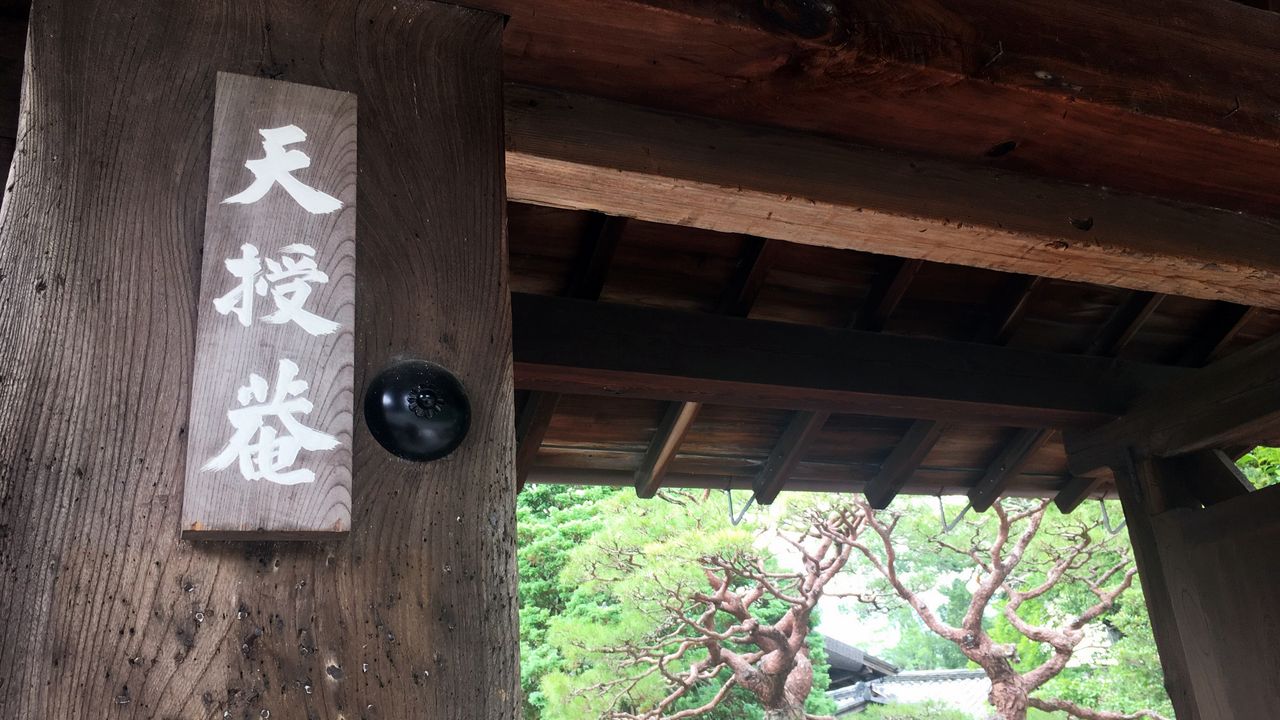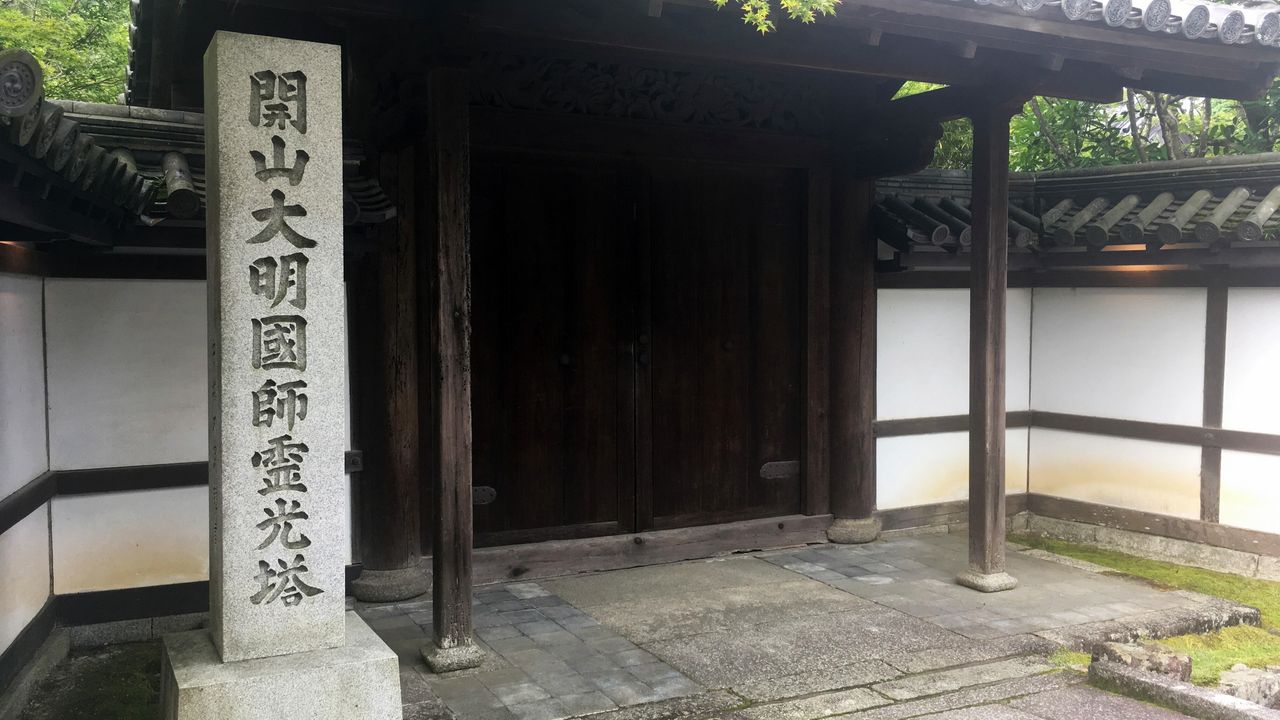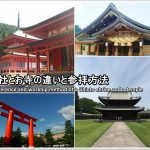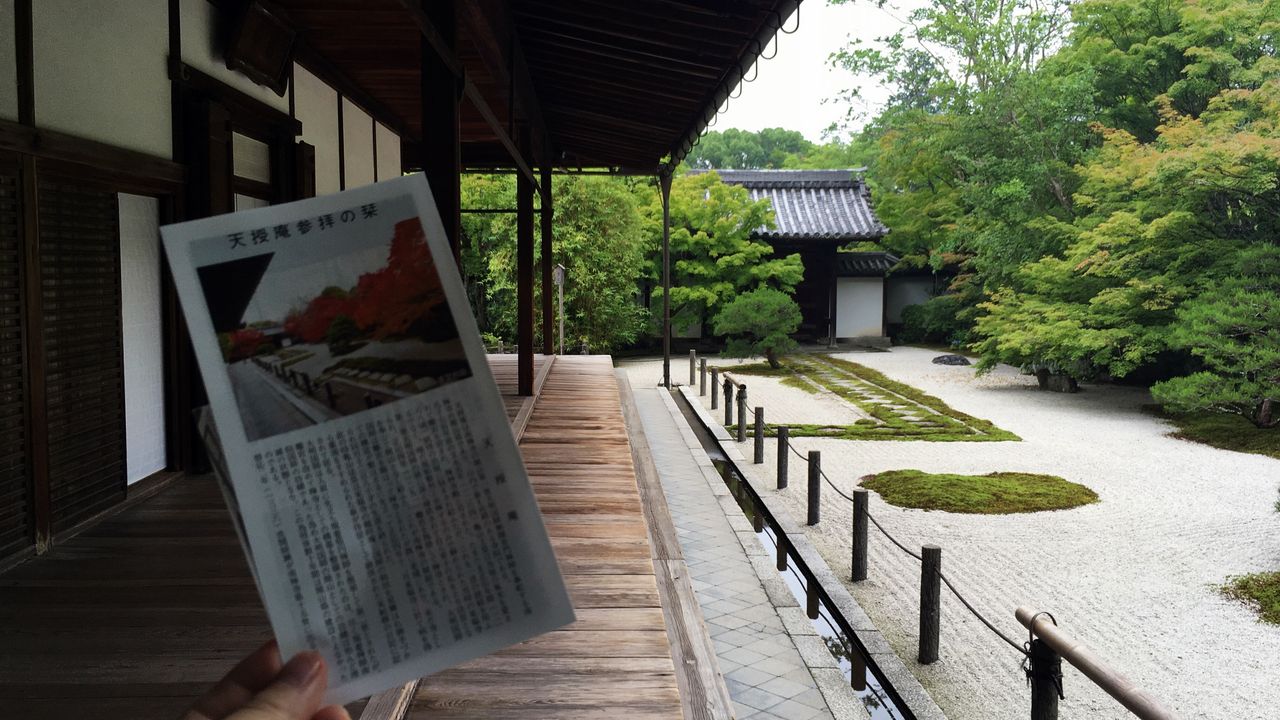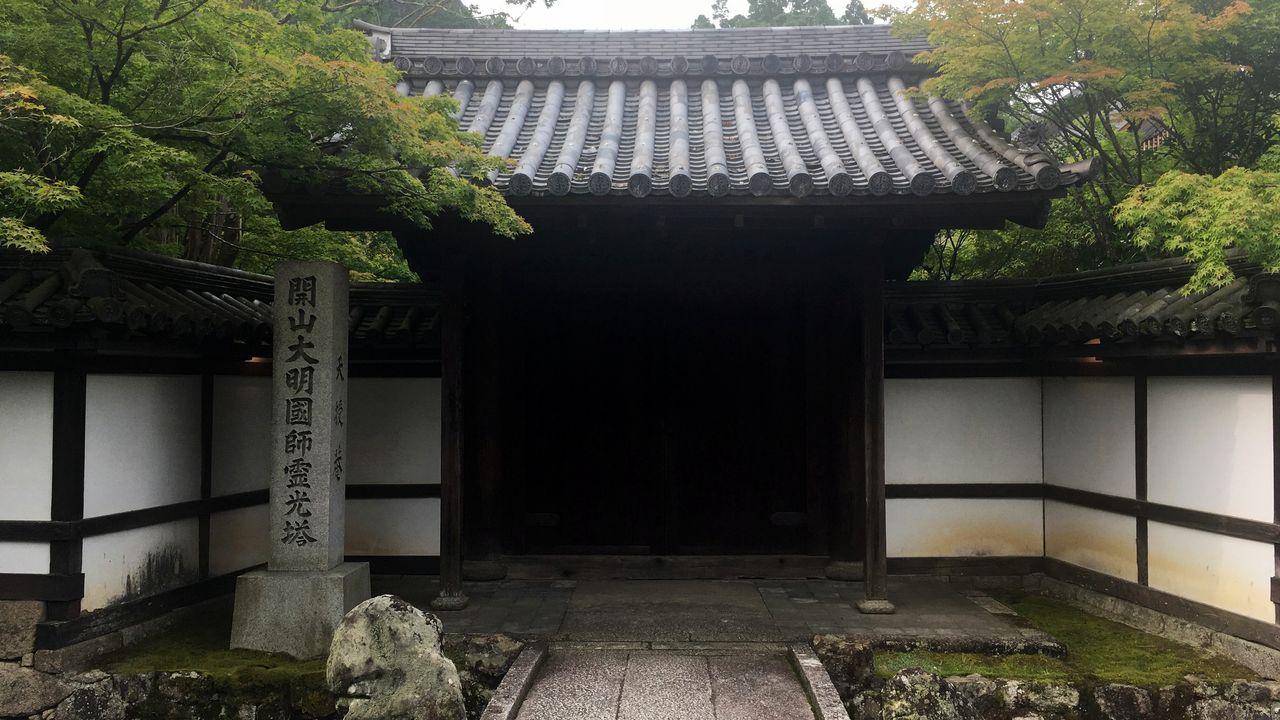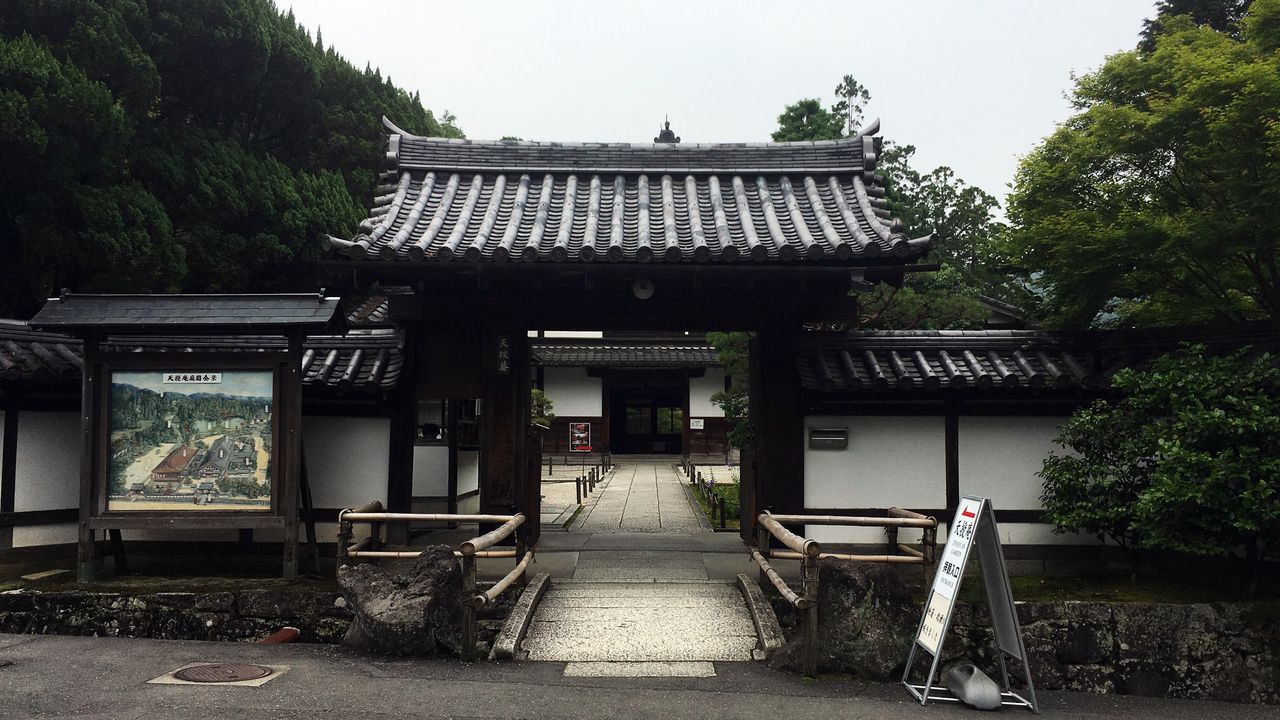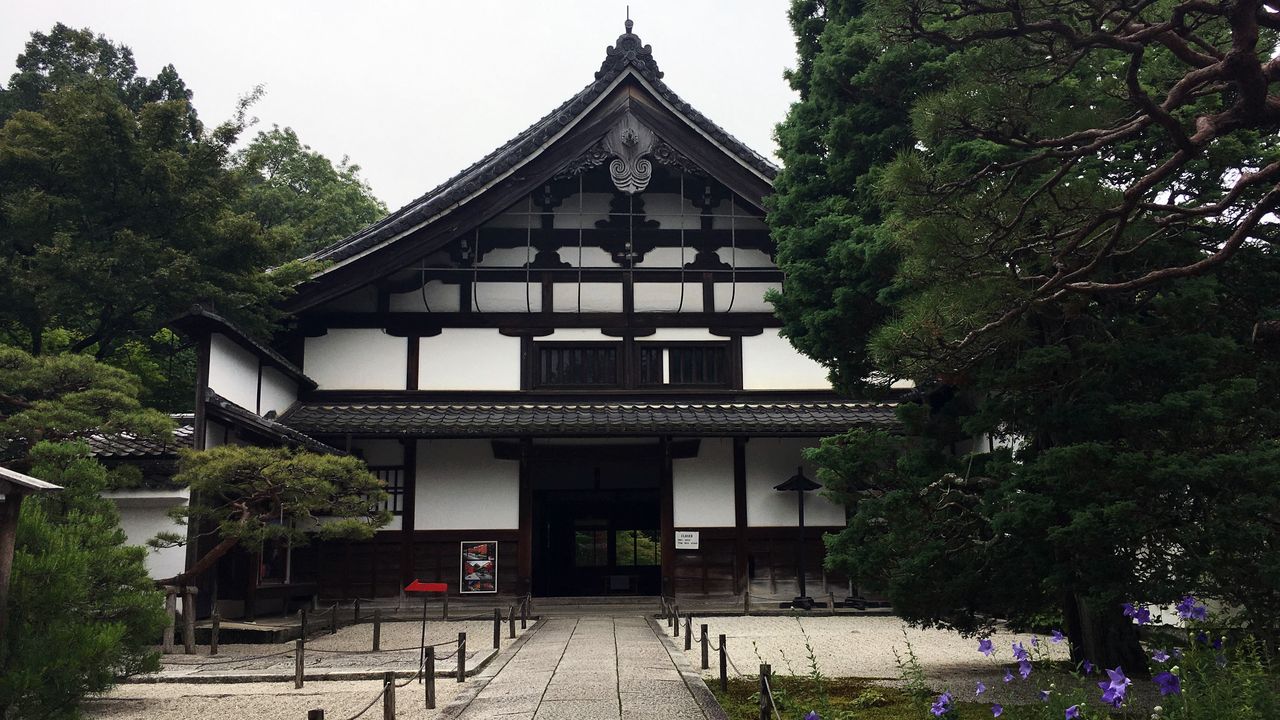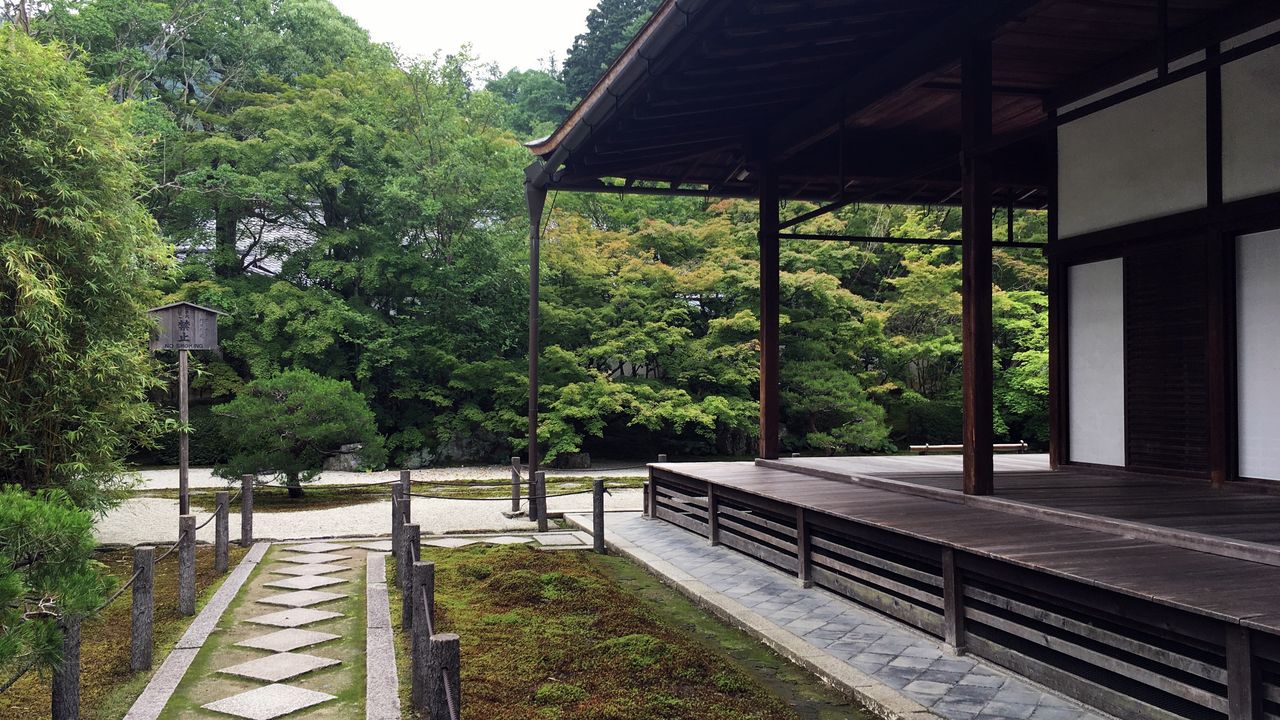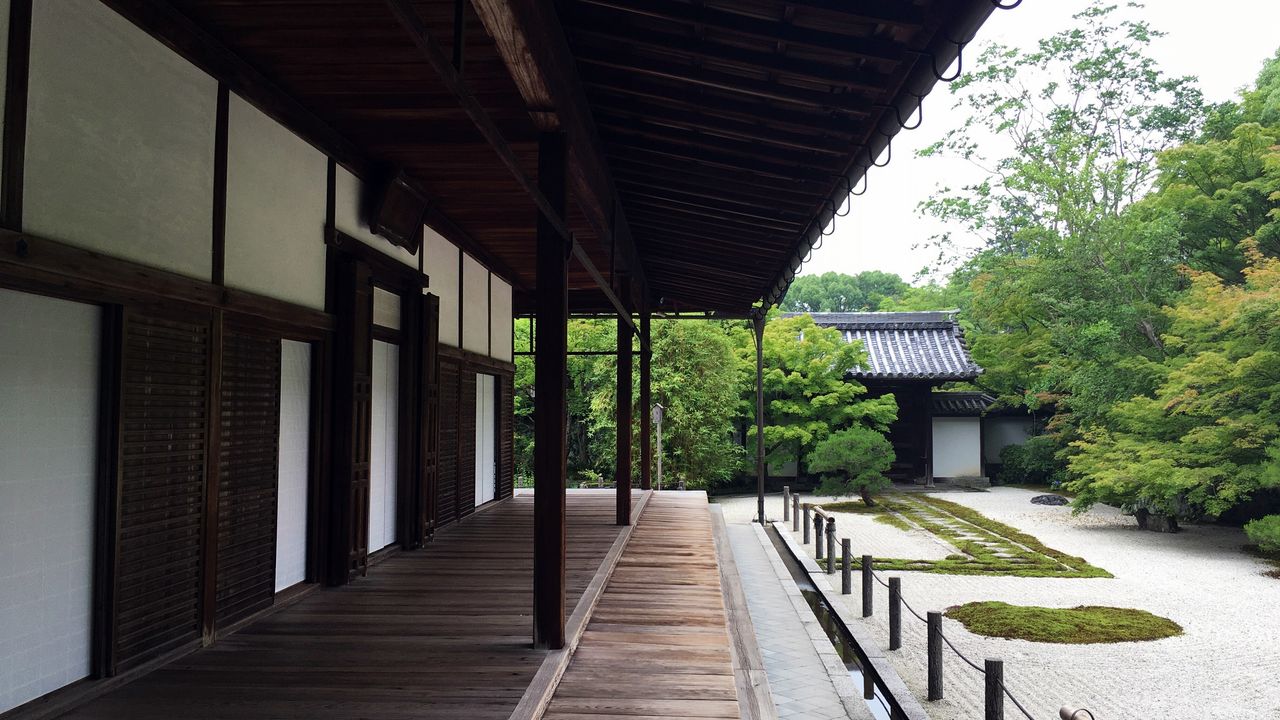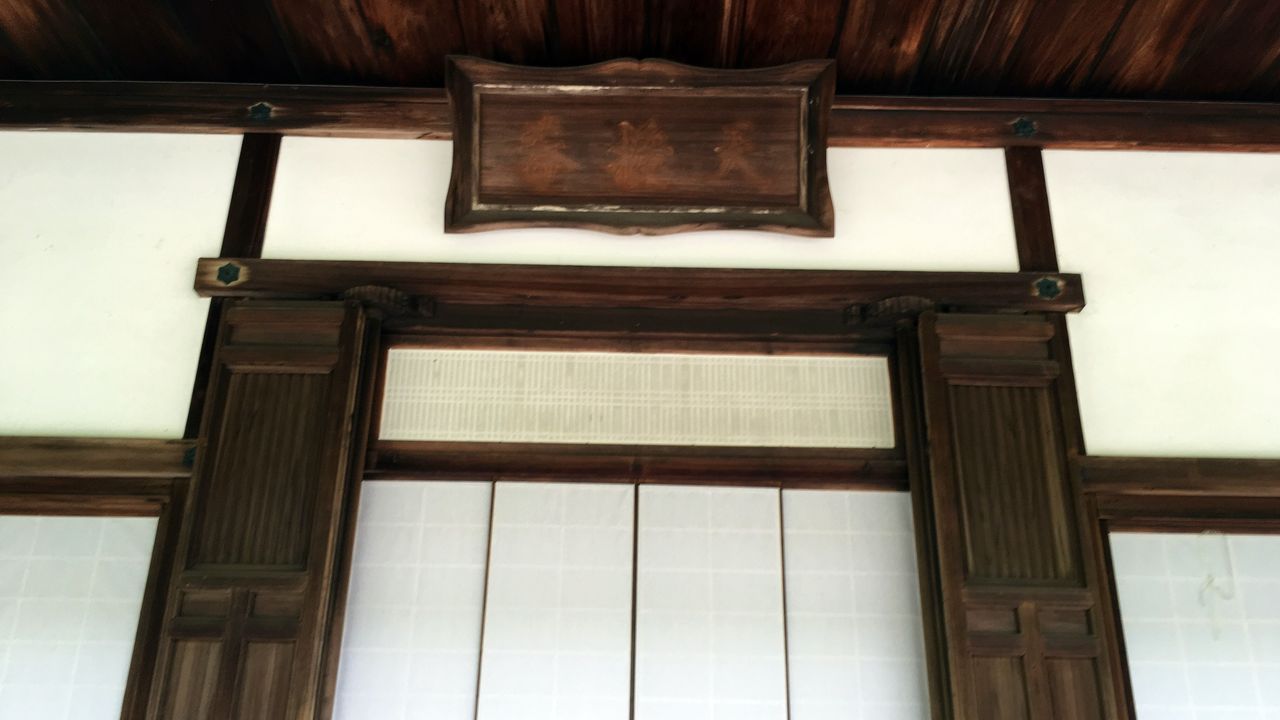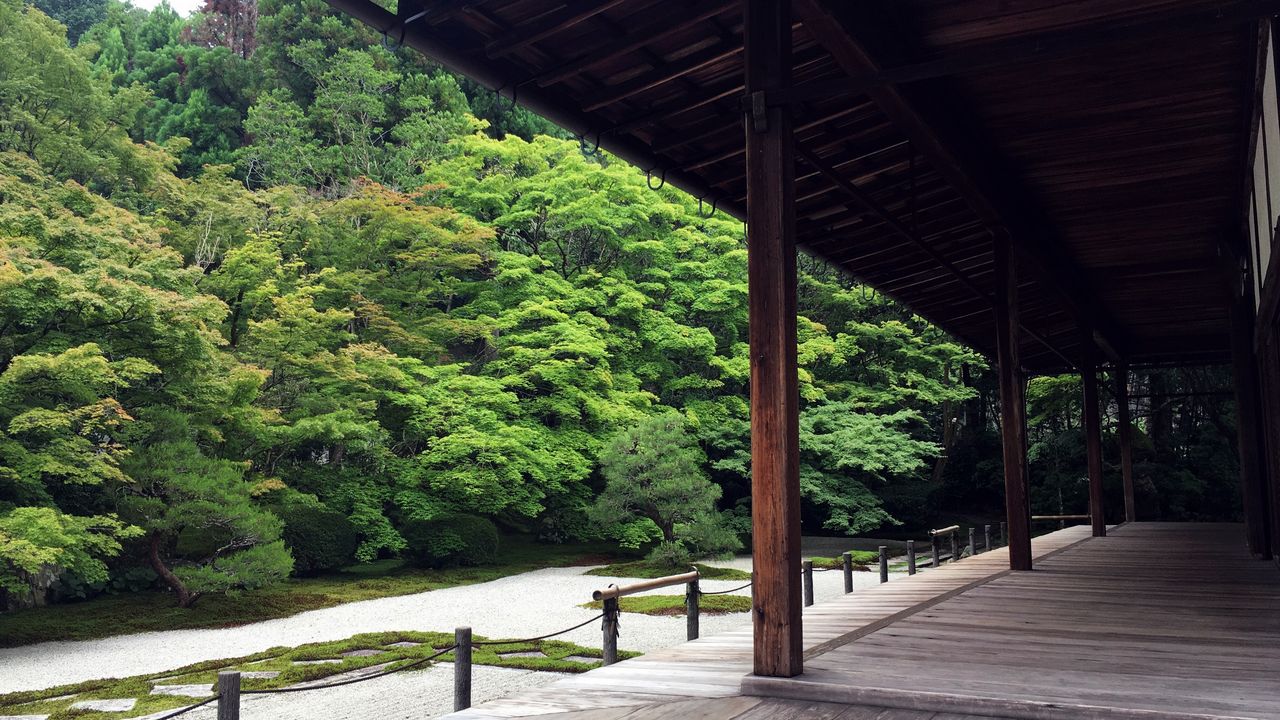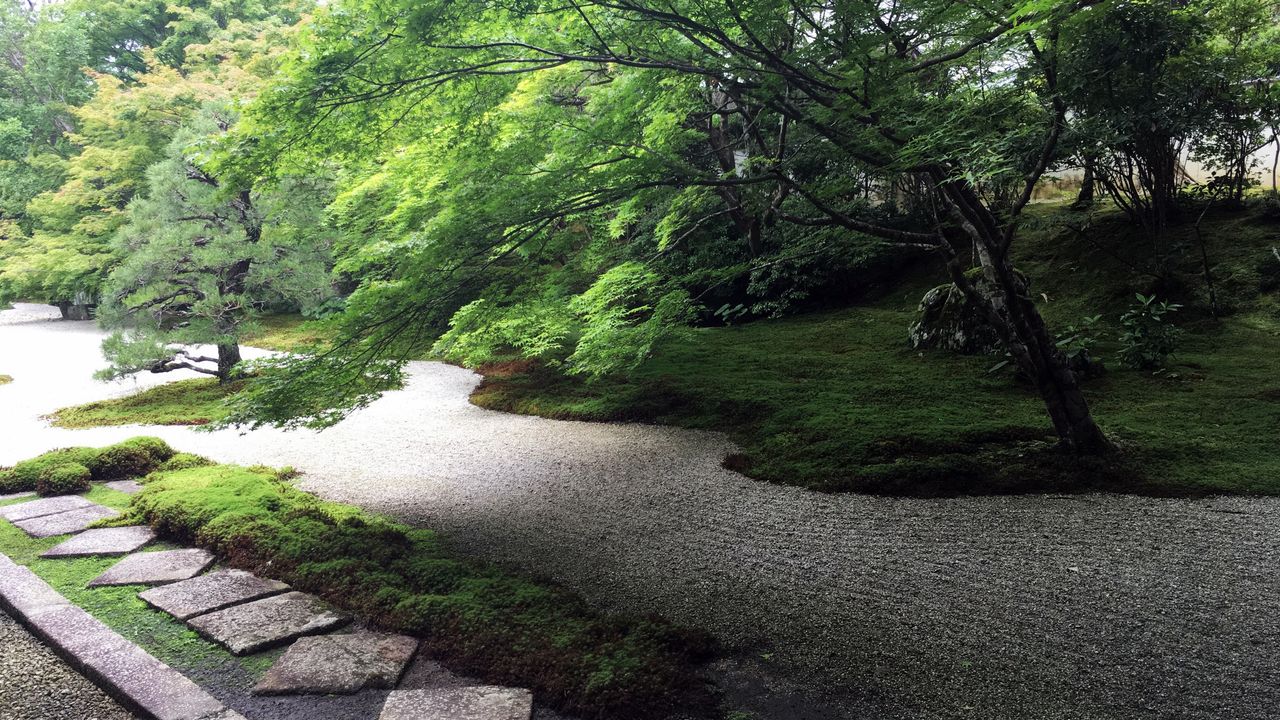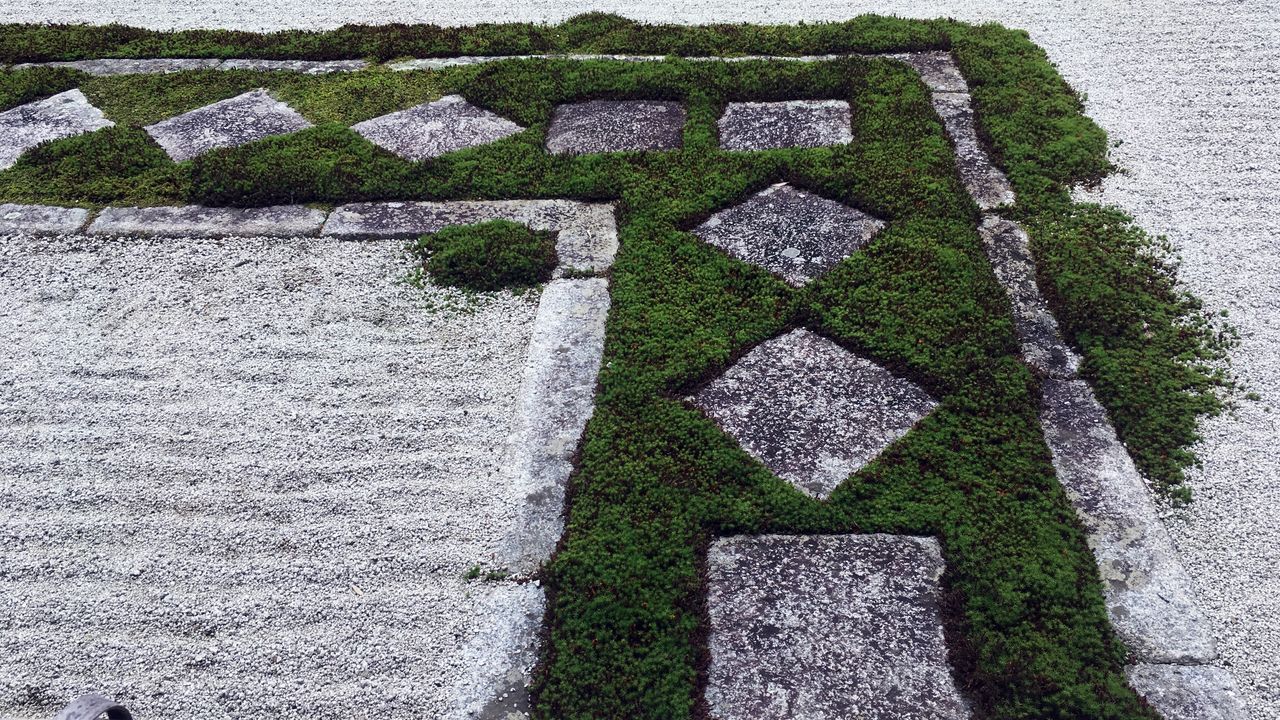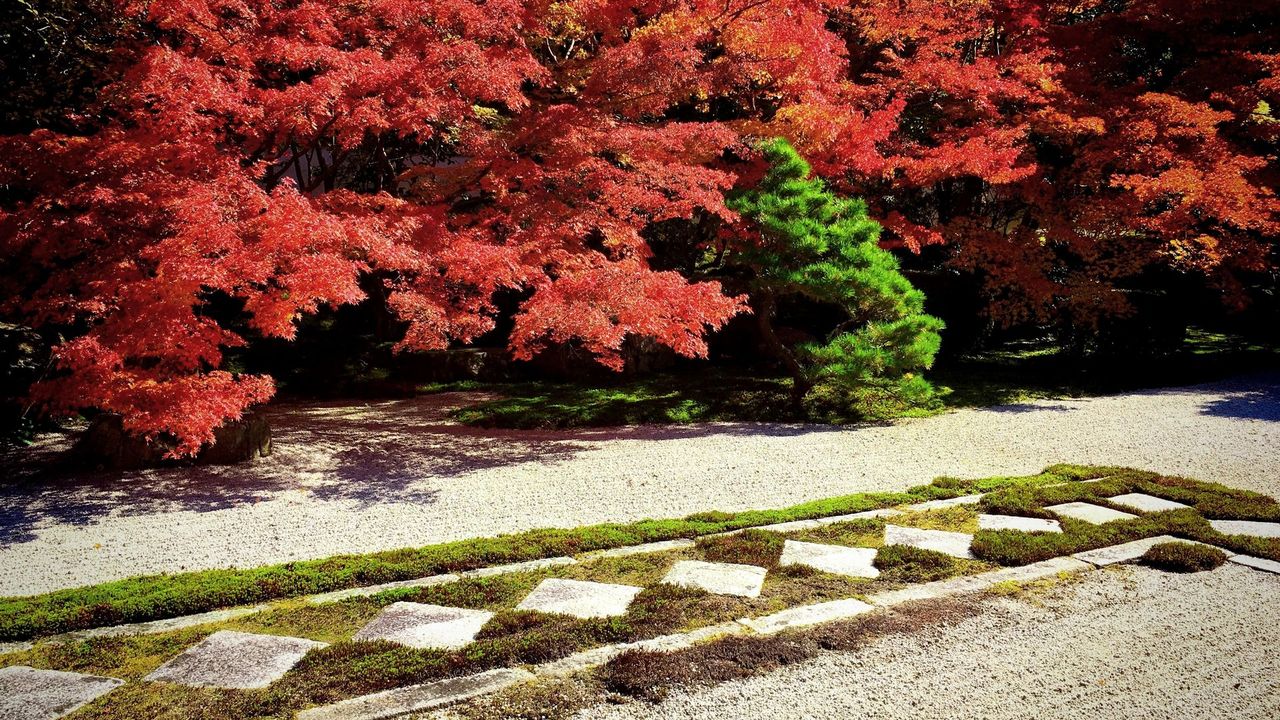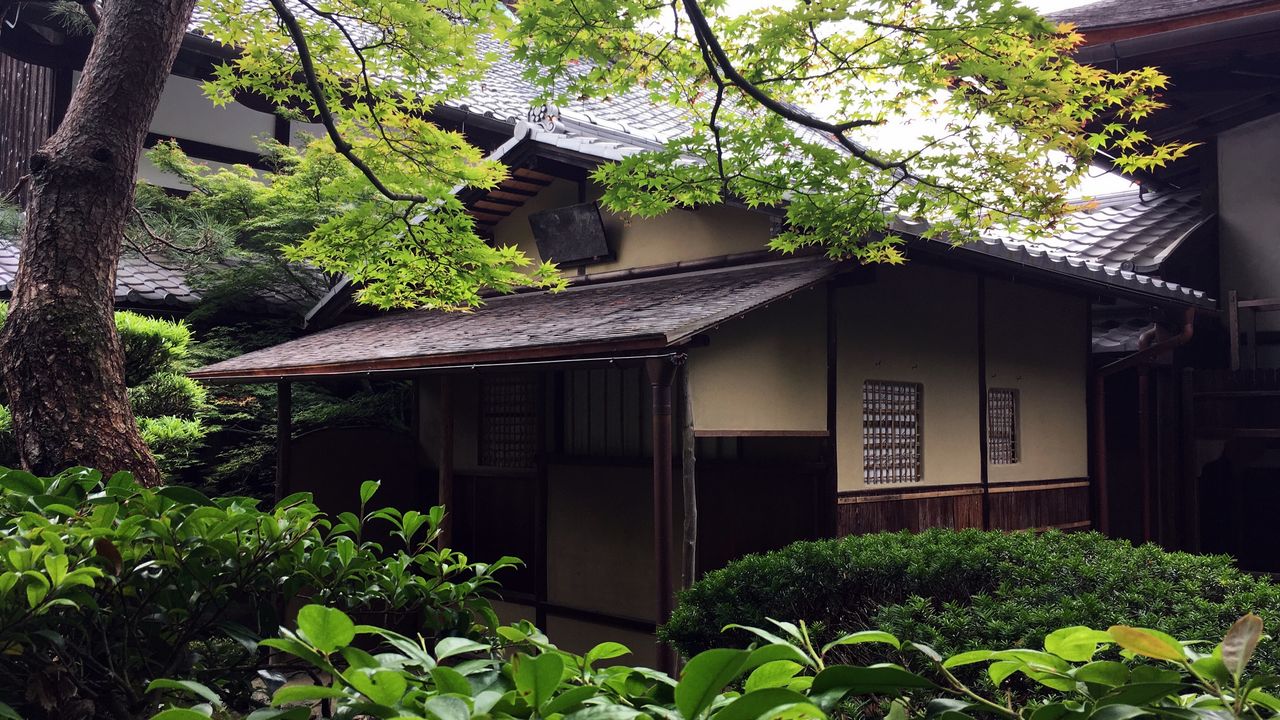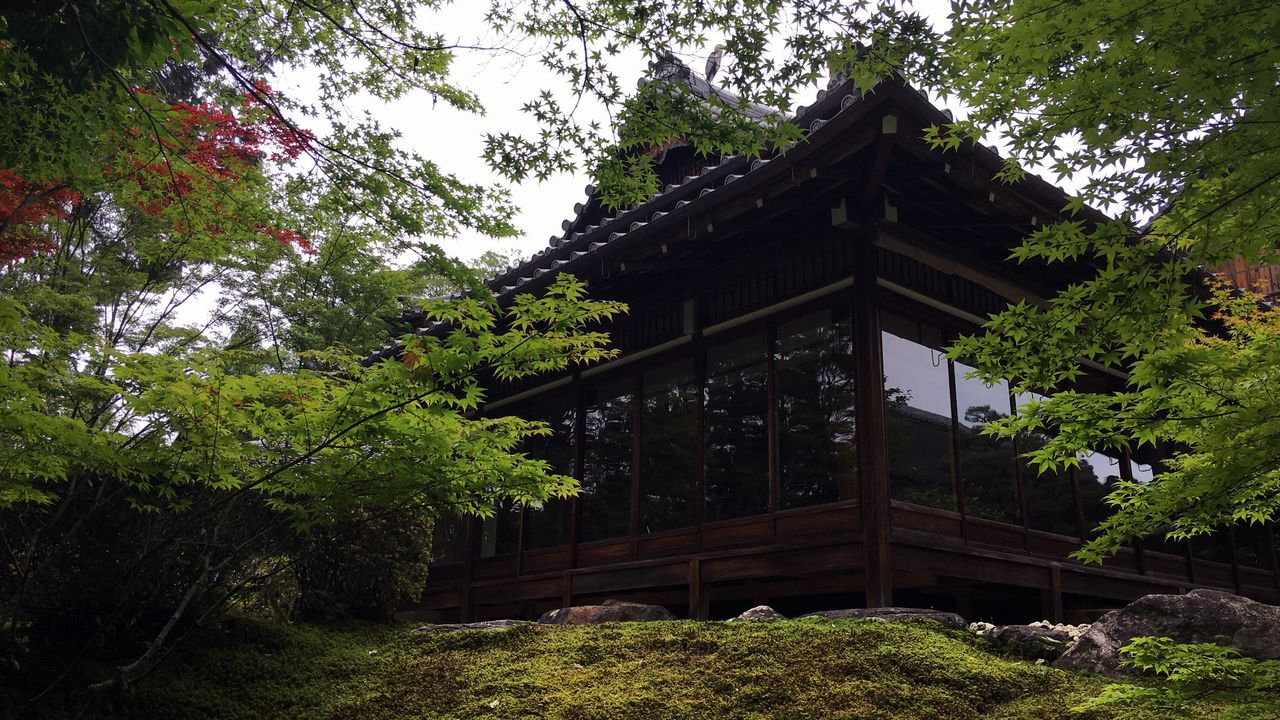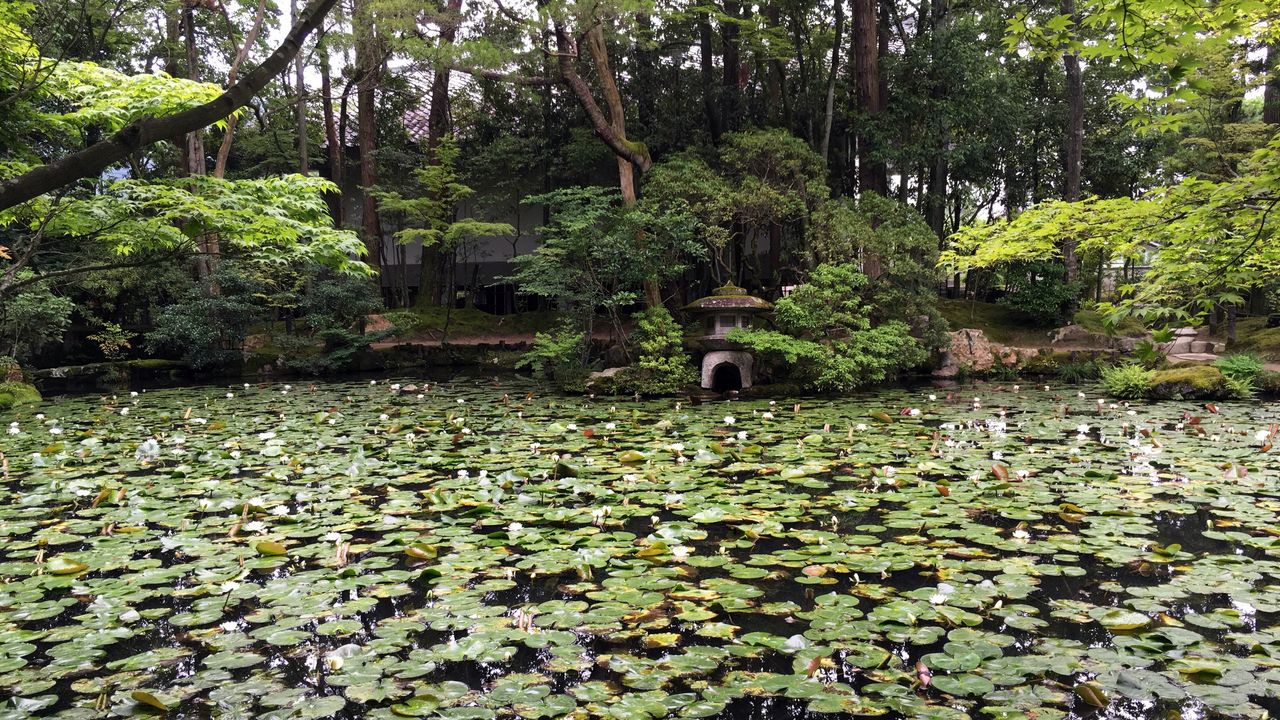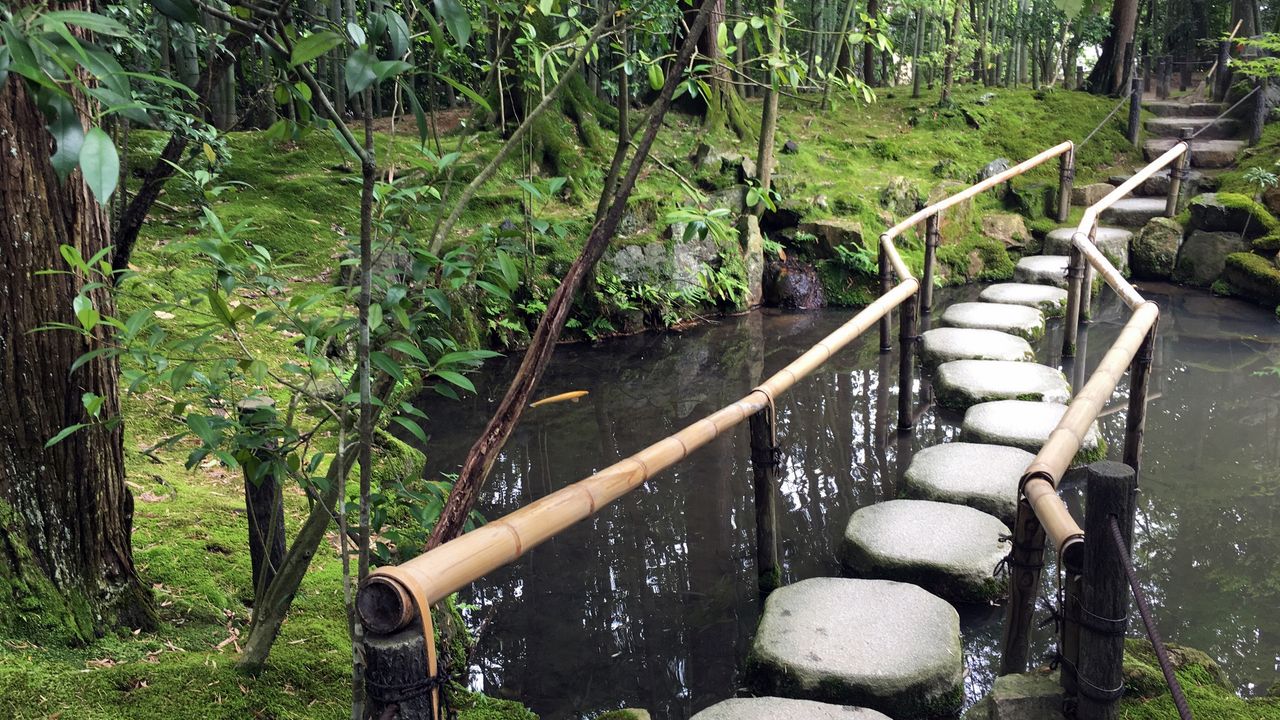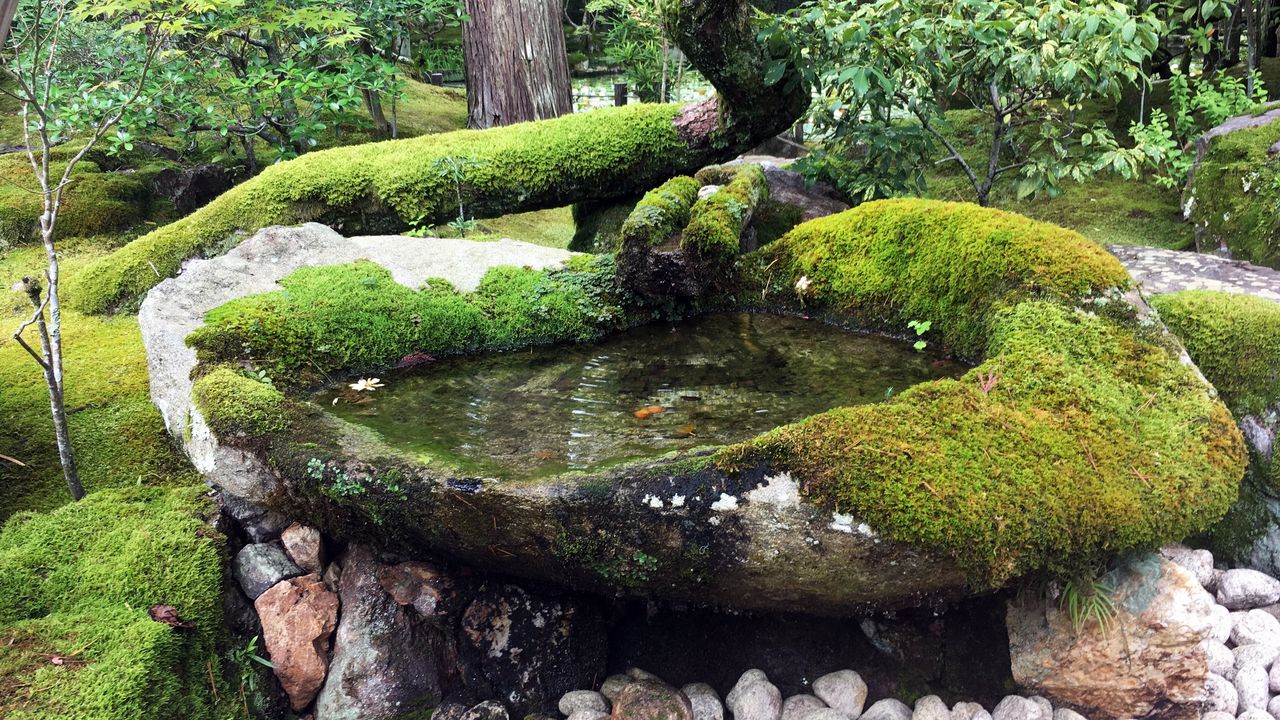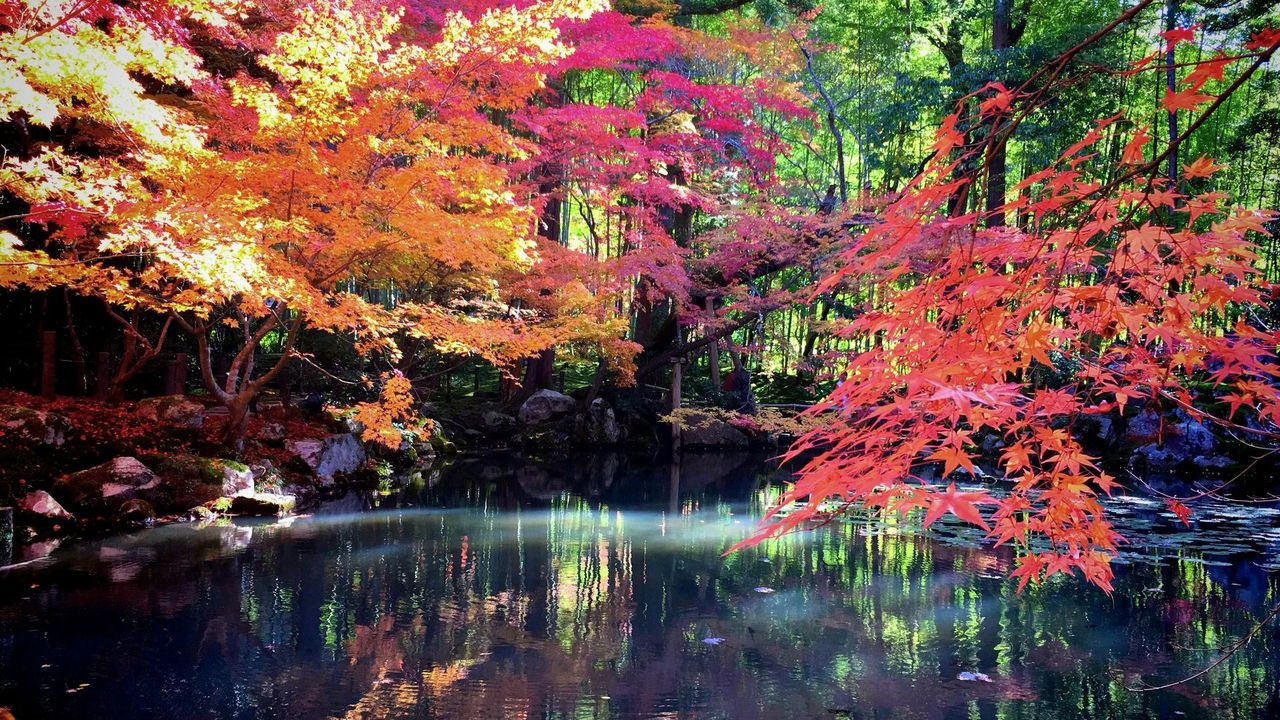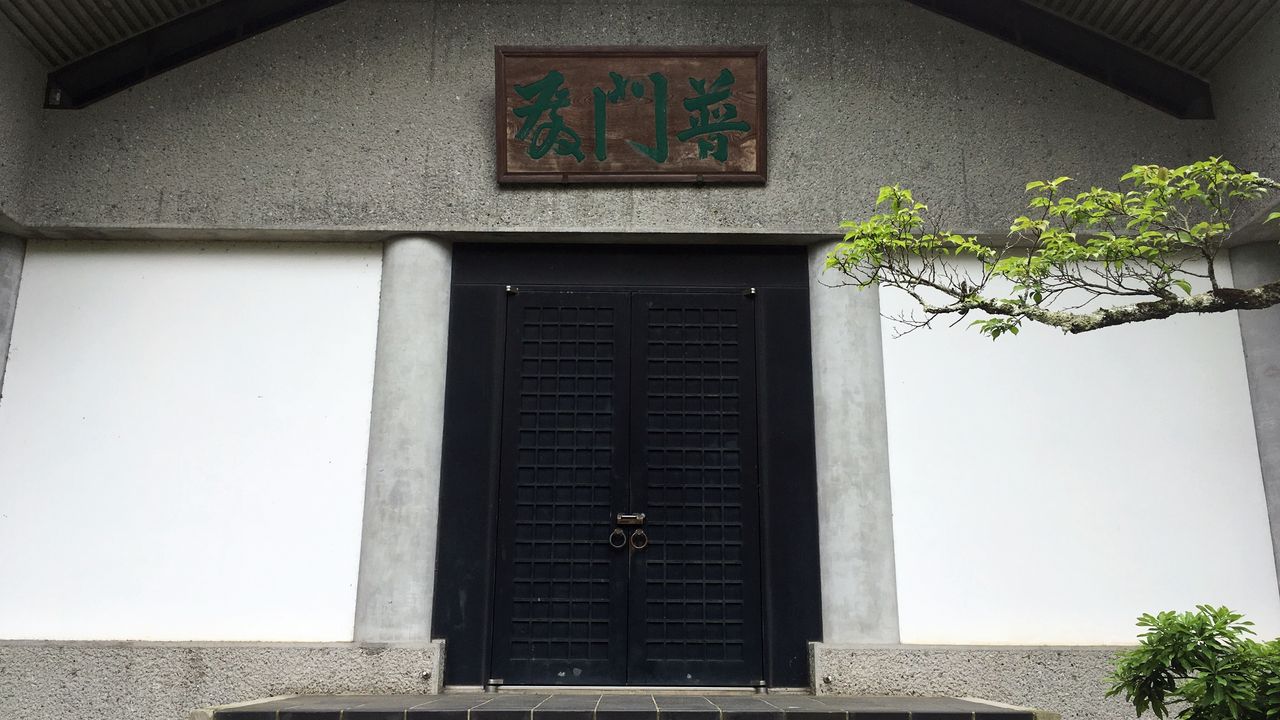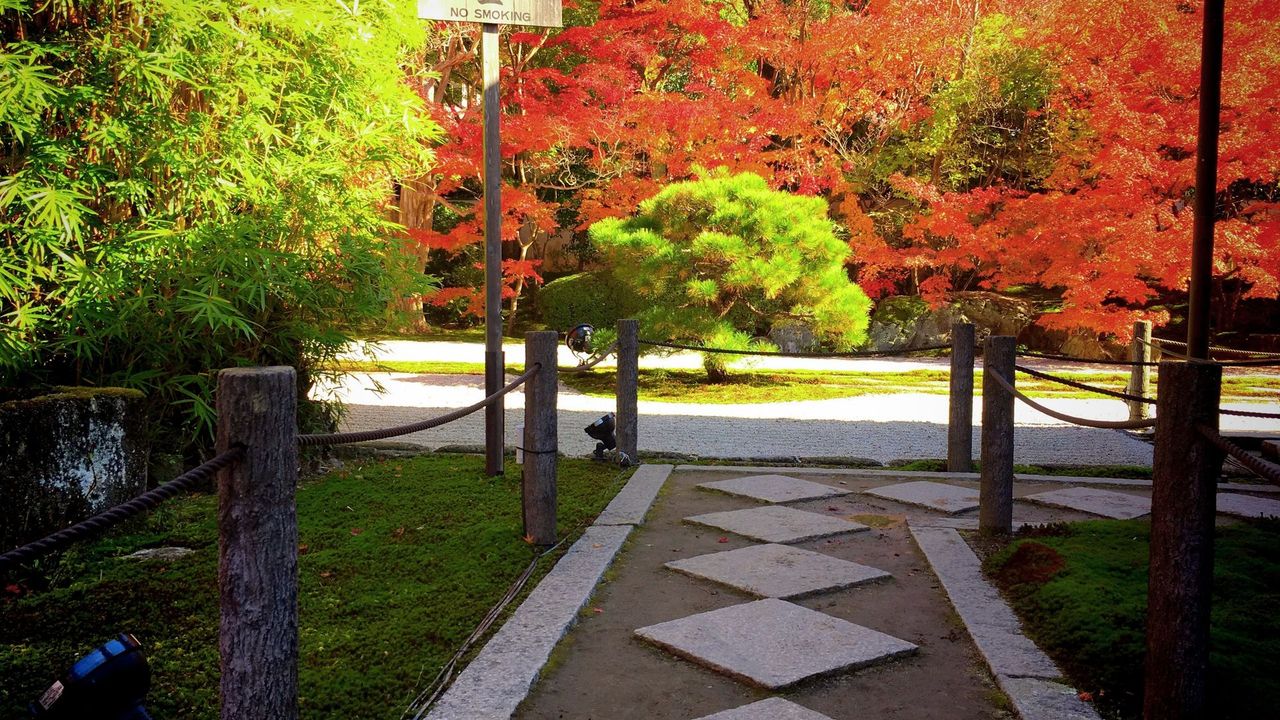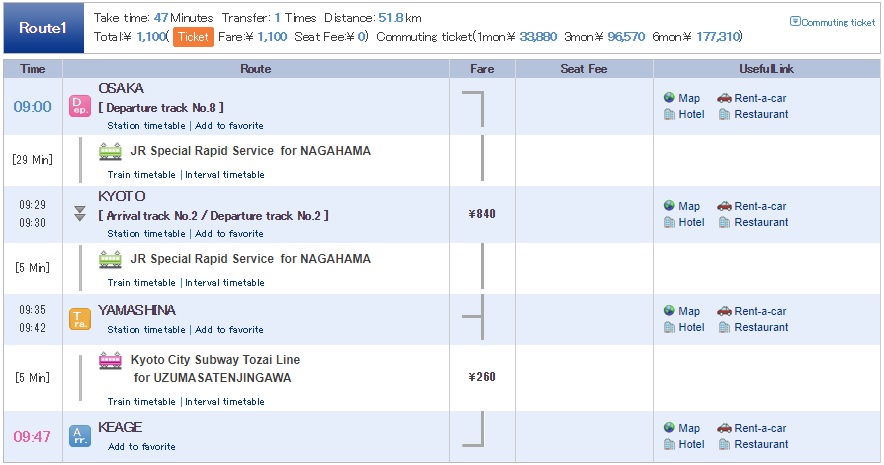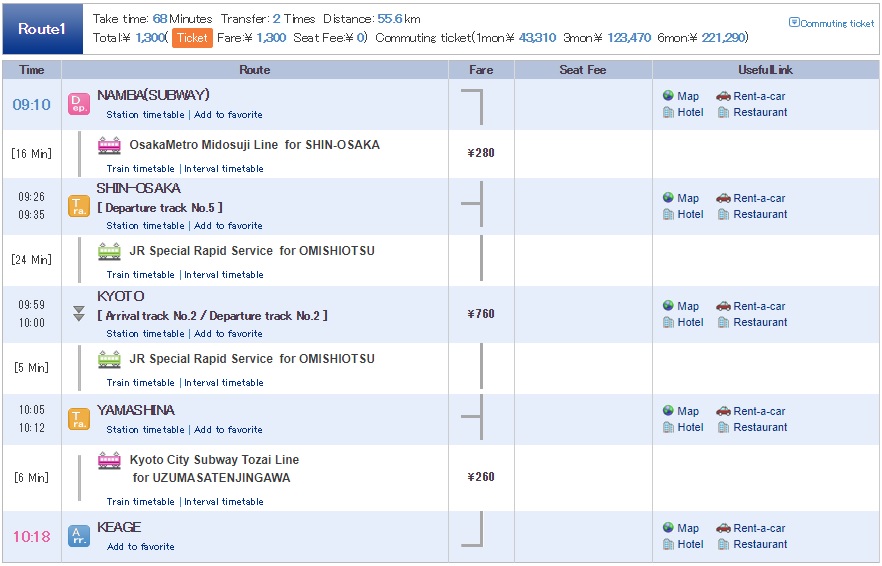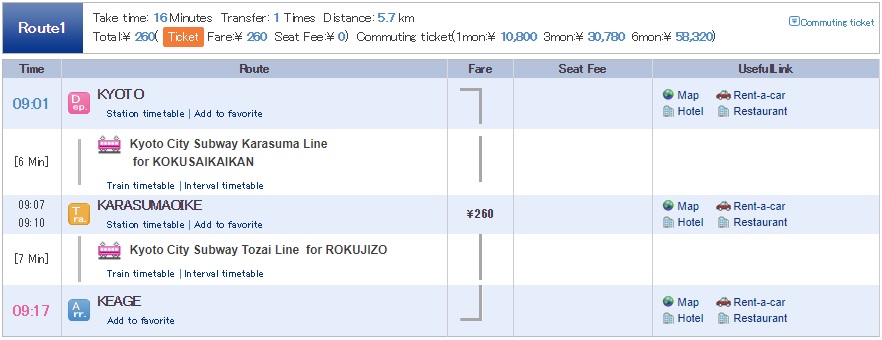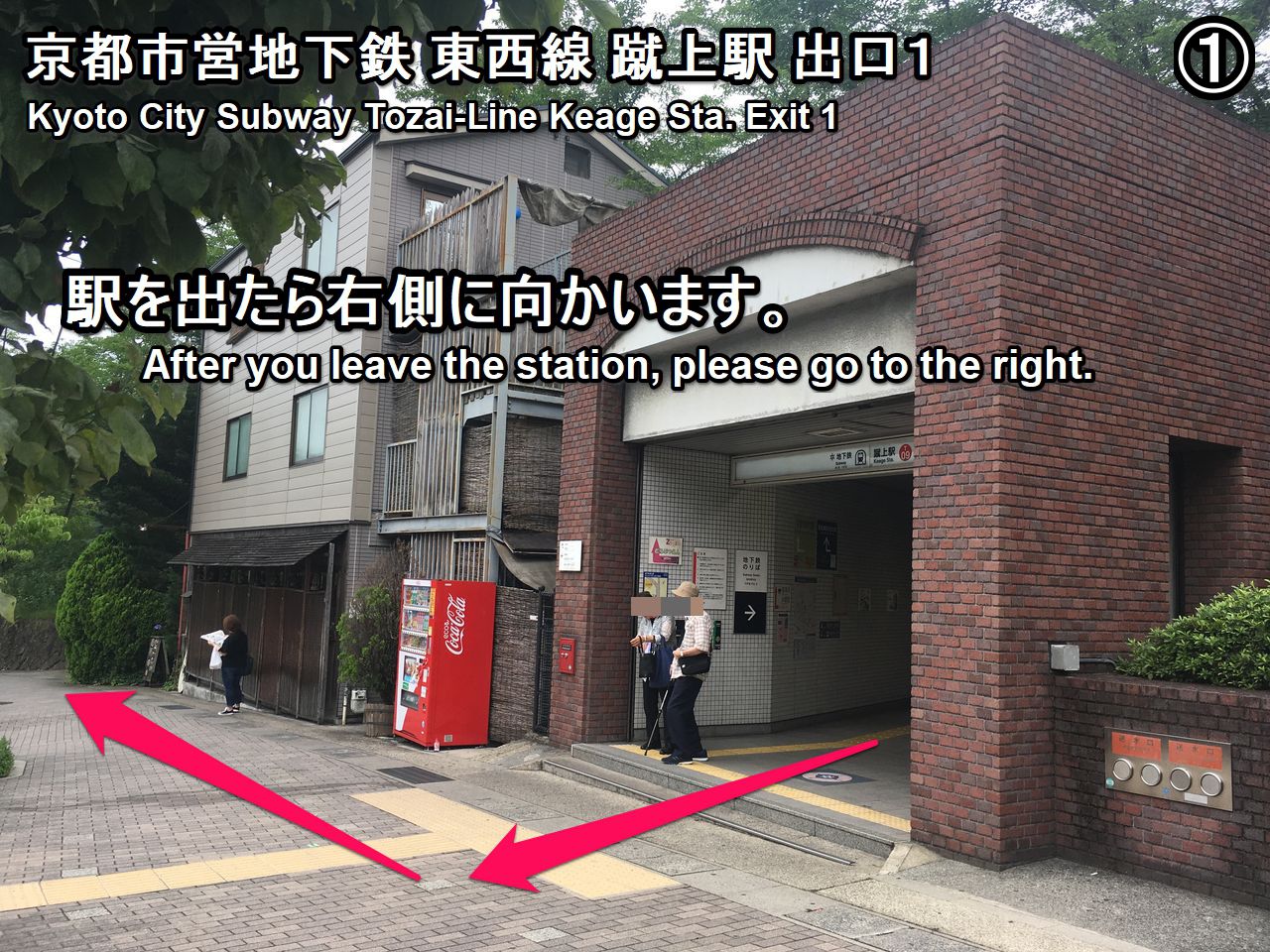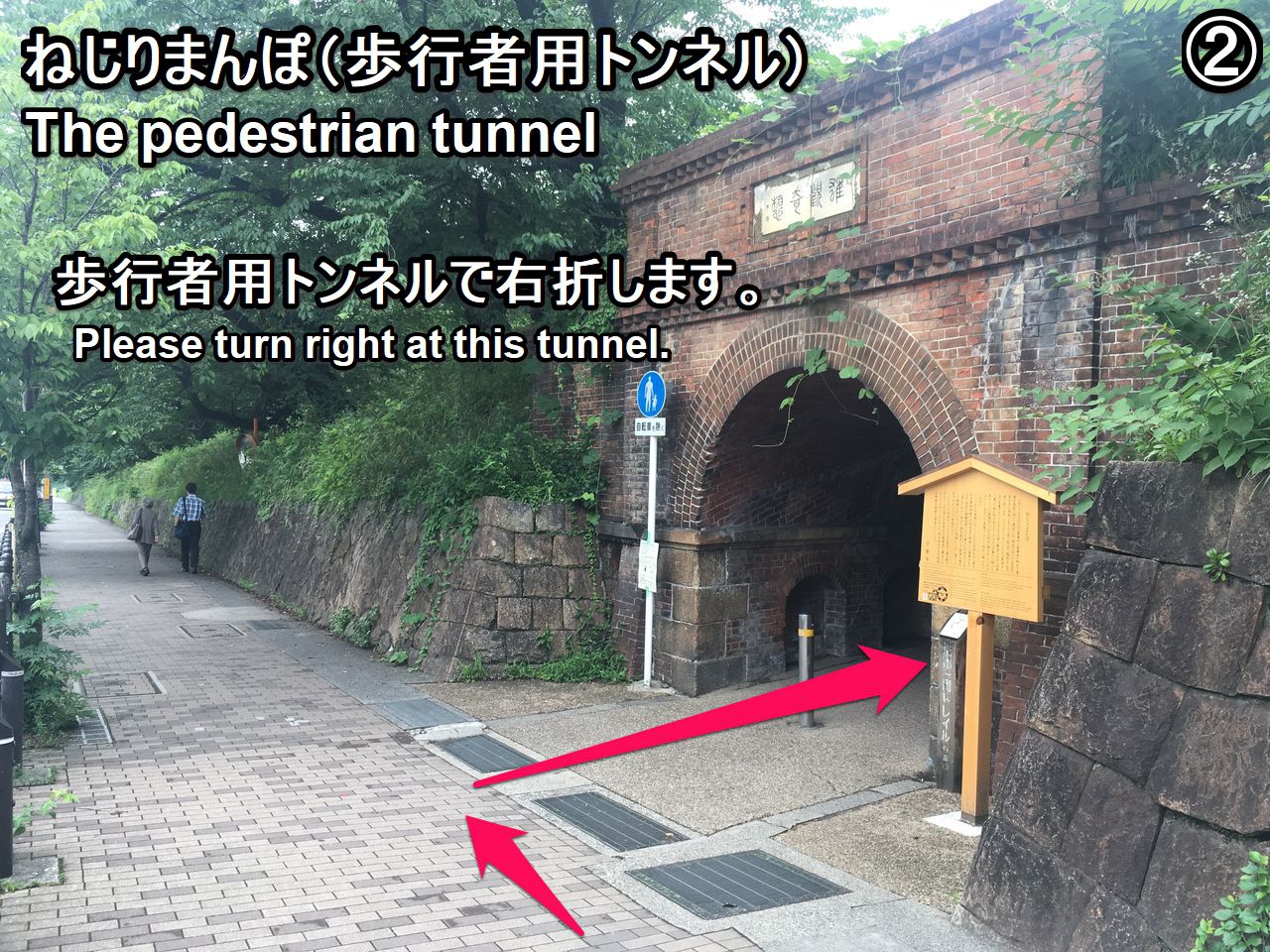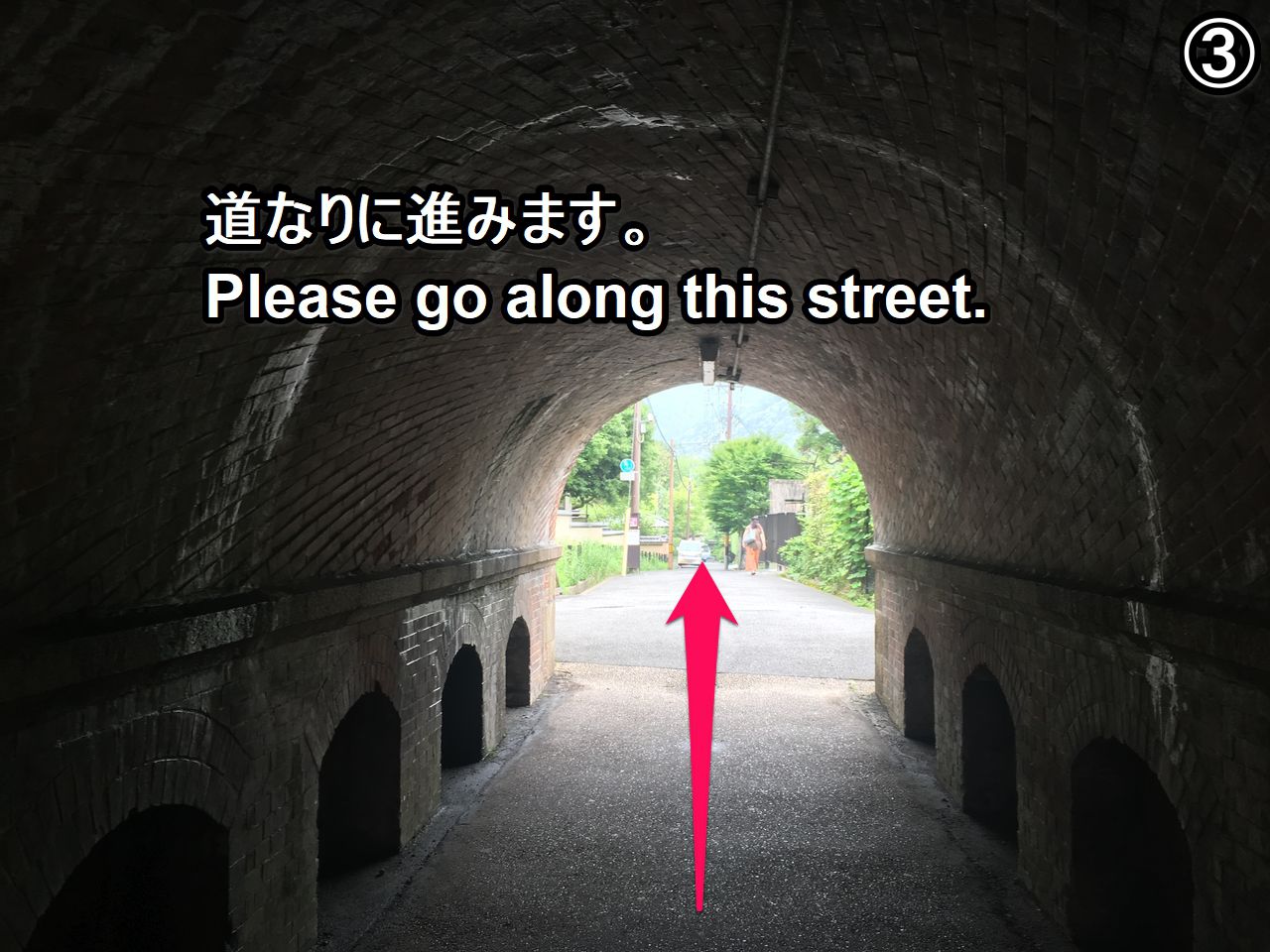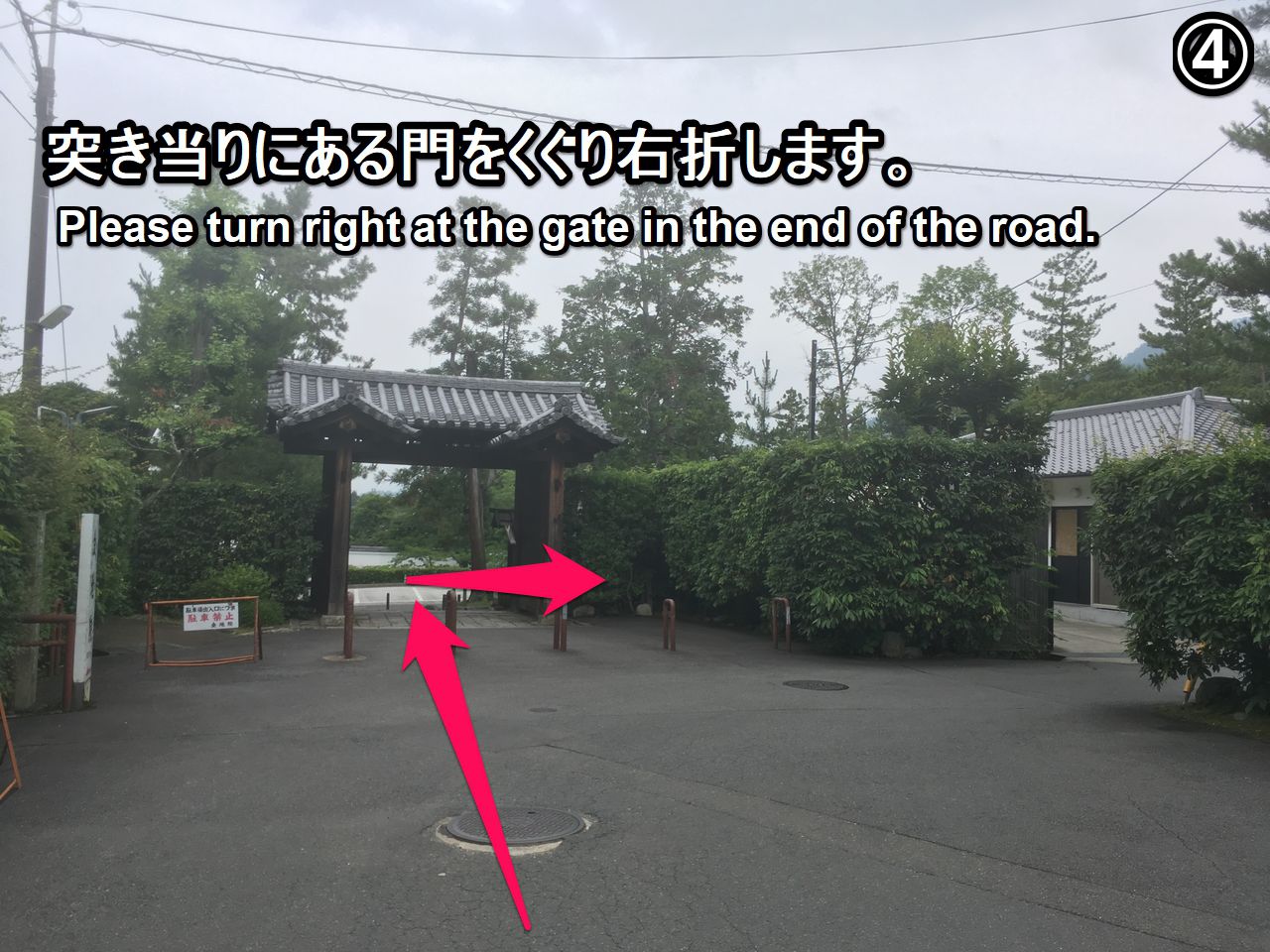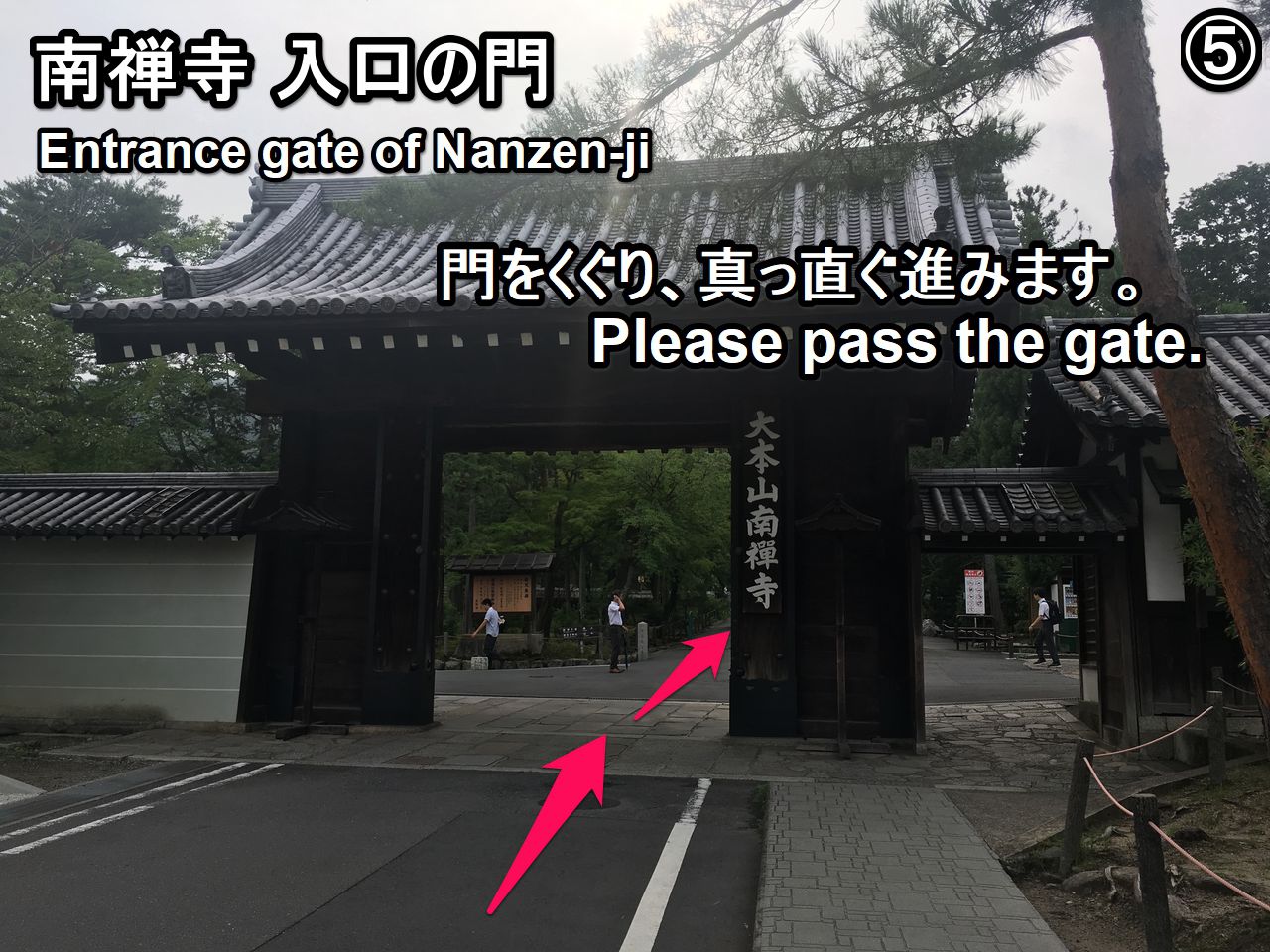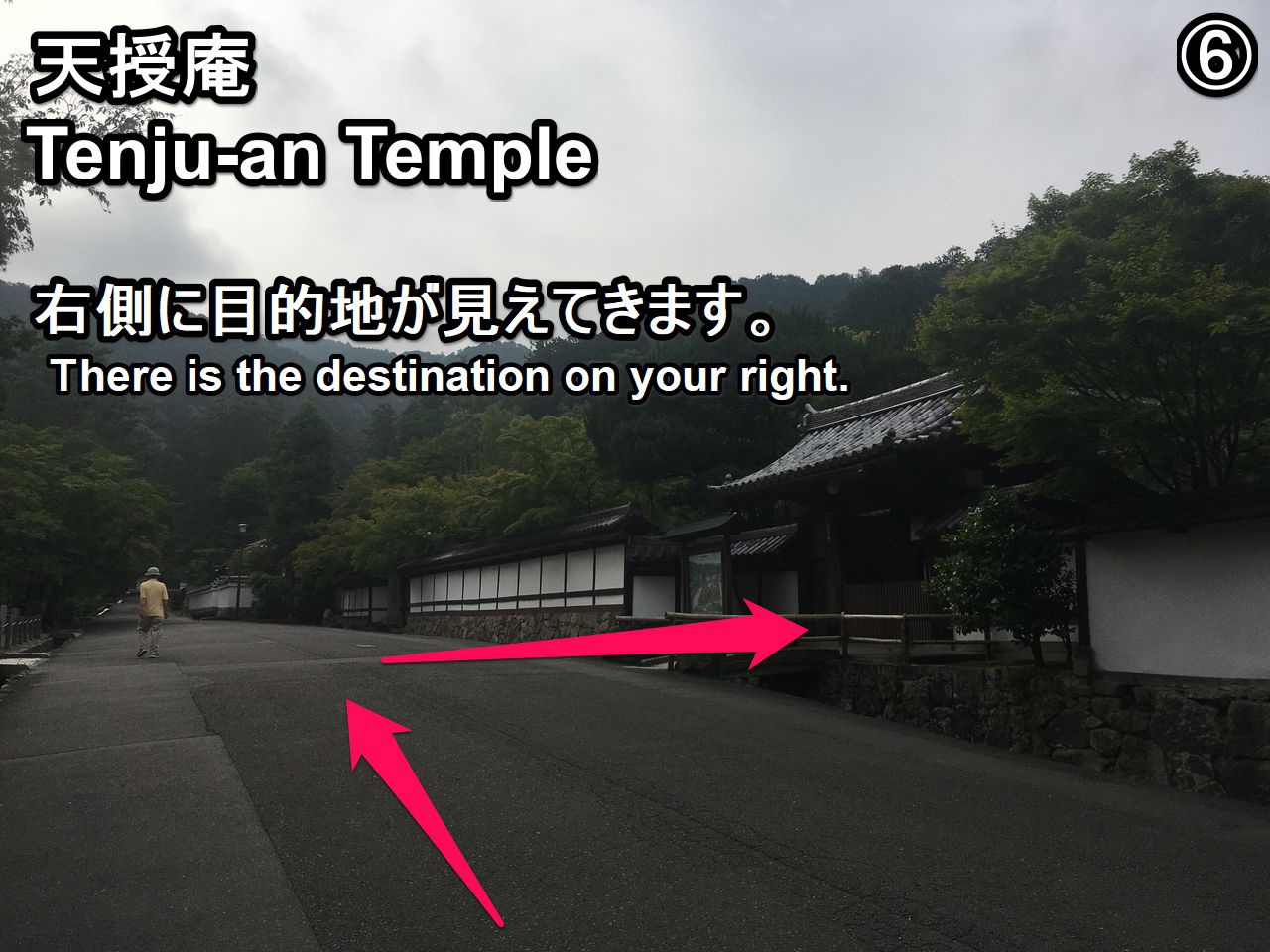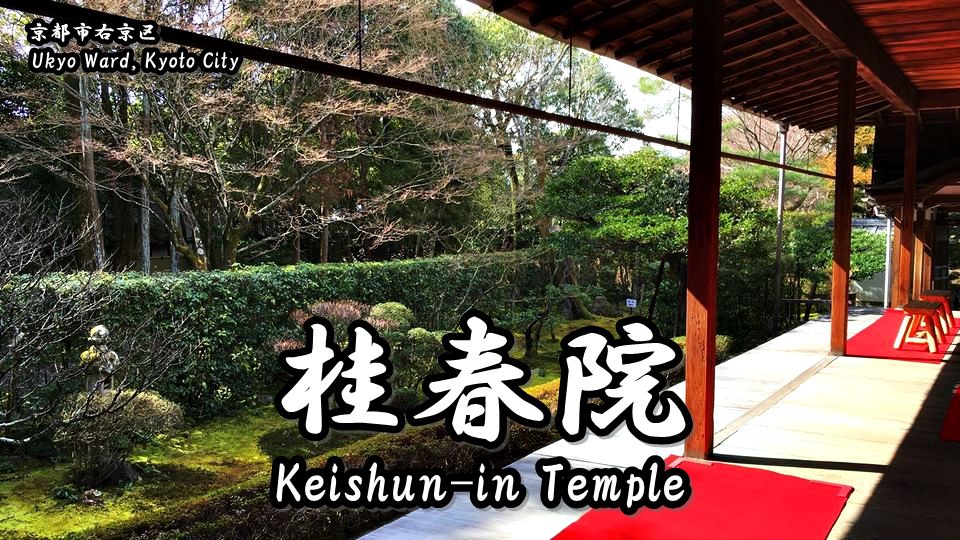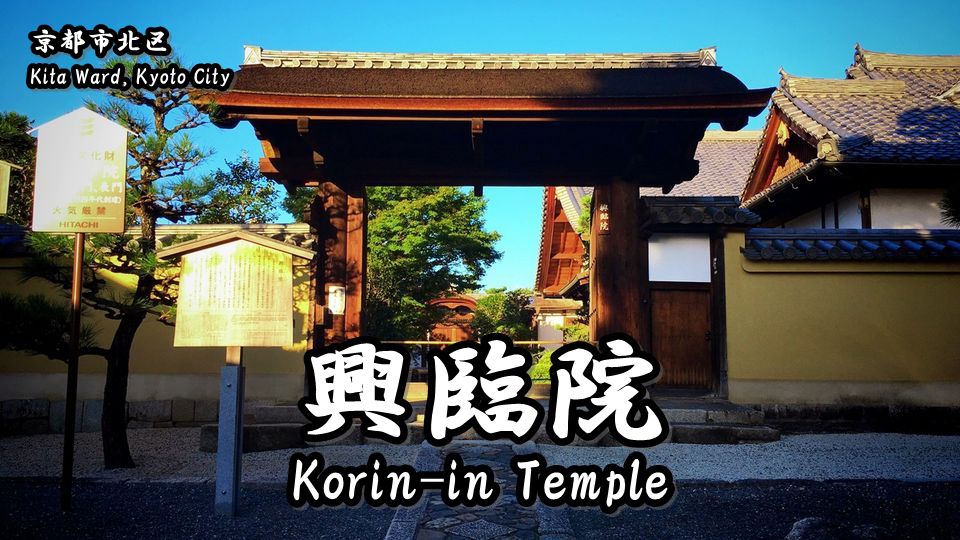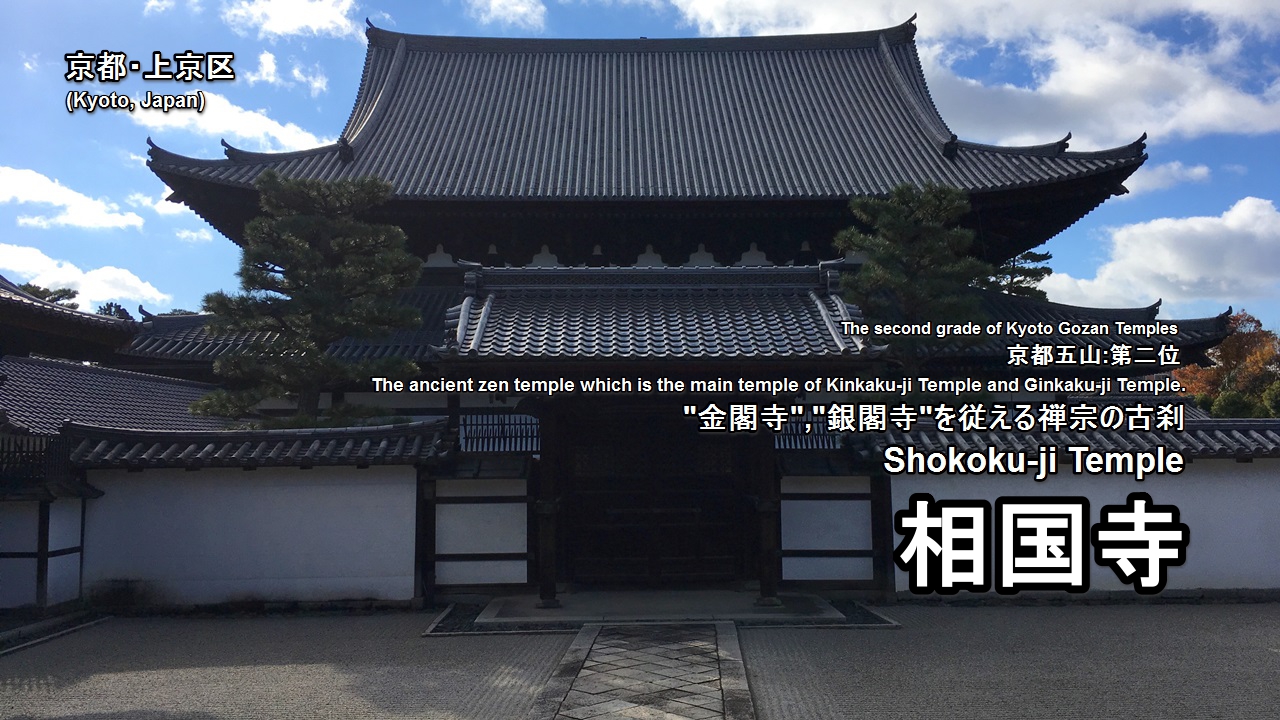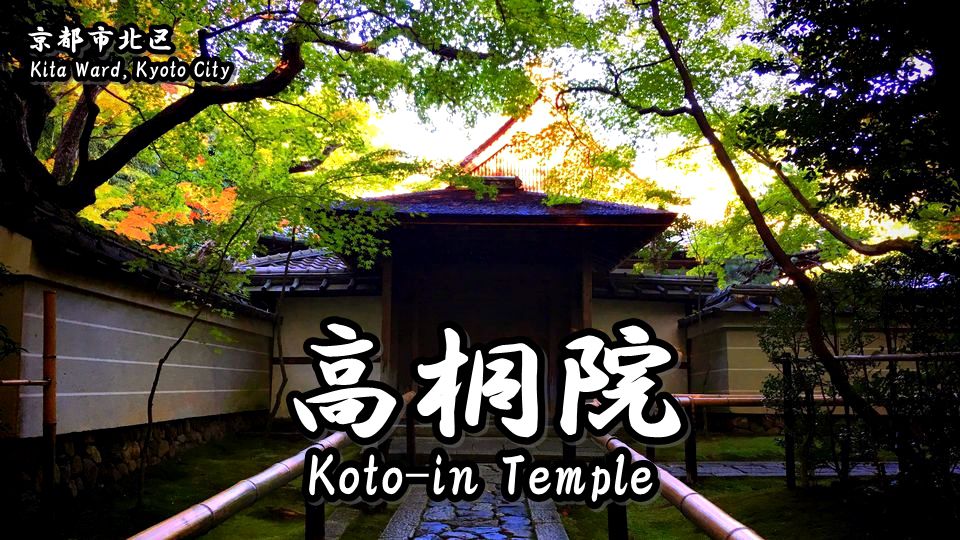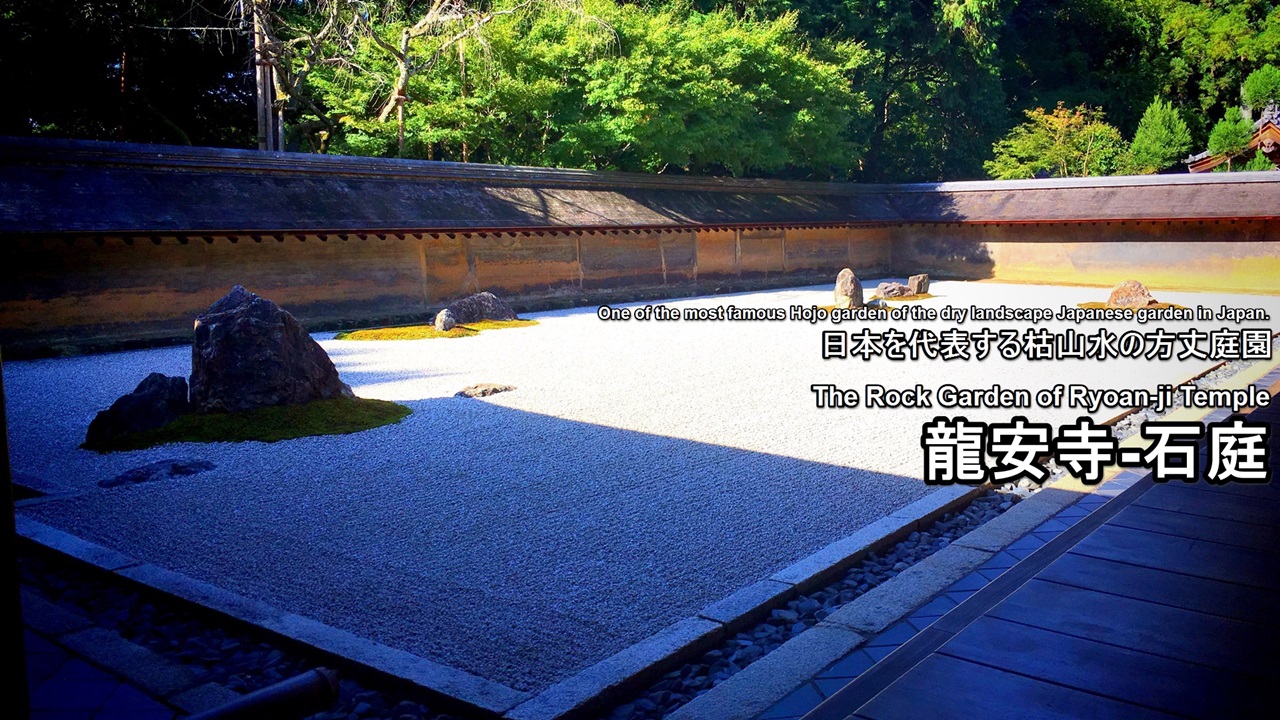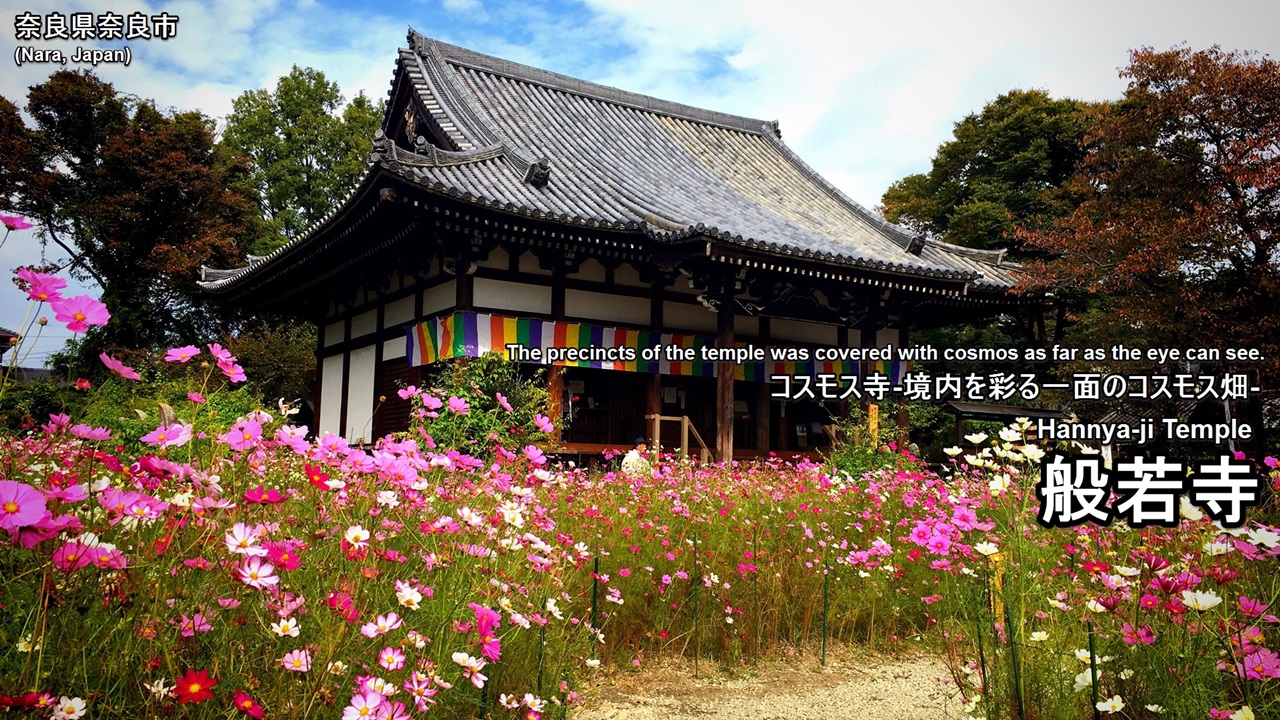Tenju-an Temple is one of a sub-temple of Nanzen-ji Temple in Sakyo Ward, Kyoto City.
Nanzen-ji isn’t itself one of the Kyoto Gozan (Five Great Zen Temples of Kyoto) but presides over them all and holds the highest rank of all Japan’s Zen temples.
There are two beautiful Japanese gardens in this temple.
And this area is particularly well-known for its Japanese maple trees and autumn leaves.
History
Let’s study the history of this temple with me.
I think that we can enjoy sightseeing of this temple more by learning the history of it. XD
Tenju-an was built in the period of the Northern and Southern Courts by Kokan Shiren who was the 15th chief priest of Nanzen-ji.
It was built for the pagoda (graveyard) of Mukan Fumon who was the founder of Nanzen-ji Temple.
The temple was later destroyed by fire during the Onin War(1467-1477).
And it was rebuilt by the donations of Fujitaka HOSOKAWA (Yusai HOSOKAWA) who was a busho (Japanese military commander) and daimyo (Japanese feudal lord) from the end of the Sengoku period to the early Edo period.
Information for visitors
Information
Address:86-8, Nanzenji Fukuchicho, Kyoto Shi Sakyo Ku, Kyoto Fu, 606-8435, Japan
Phone:+81-75-771-0744
Foundation:1337
Founder:Kokan Shiren (虎関師錬)
Sect:Rinzai sect Nanzen-ji School (臨済宗南禅寺派)
Principal image:Mukan Fumon (無関普門)
■Open
9:00 – 17:00
■Admission Fee
| Adults | 500 yen |
| High school students | 400 yen |
| Elementary and junior high school students | 300 yen |
■Other information
Please ask temple’s staff where you can take photos and videos.
The worship method of a shinto shrine and a buddhist temple, please refer to the following article.
Next, let’s go to see the highlights of this temple with me!
Highlights of Tenju-an
- 表門(Omote-mon gate)
- 山門(San-mon gate)
- 庫裏*(Kuri*)
- 本堂*(Hon-do hall*)
- 本堂前庭*(Hon-do front garden*)
- 茶室「松関の席」*(Tea-house ‘Shokan-no-seki’*)
- 書院*(Sho-in hall*)
- 書院南庭*(Sho-in south garden*)
- 普門殿*(Treasure house ‘Fumon-den’*)
This mark 「*」 is a pay area.
表門(Omote-mon gate)
Omote-mon gate was built in 1602 of the Azuchi-Momoyama period by Fujitaka HOSOKAWA (Yusai HOSOKAWA).
It was designated as a tangible cultural asset by Kyoto City.
山門(San-mon gate)
庫裏*(Kuri*)
Kuri was rebuilt in 1853 of the Edo period.
本堂*(Hon-do hall*)
Hon-do hall was built in 1602 of the Azuchi-Momoyama period by Fujitaka HOSOKAWA (Yusai HOSOKAWA).
It was designated as a tangible cultural asset by Kyoto City.
本堂前庭*(Hon-do front garden*)
Hon-do front garden is a dry landscape garden covered in hair moss and white sand.
The autumn leaves are extremely beautiful in this garden.
茶室「松関の席」*(Tea-house ‘Shokan-no-seki’*)
It is a tea-house called ‘Shokan-no-seki’ which was built in 1899 of the Meiji period.
書院*(Sho-in hall*)
Sho-in hall was built in the Kaei era (1848-1854) of the Edo period.
書院南庭*(Sho-in south garden*)
Sho-in south garden is a chisen-kaiyushiki garden, Japanese style garden with a path around a central pond and spring.
普門殿*(Treasure house ‘Fumon-den’*)
Fumon-den in the depths of the precincts has a role of the storage of the temple treasures.
Autumn leaves of Tenju-an
Tenju-an is famous for its autumn leaves.
The best season is late November to early December.
Video of Tenju-an
Photo of Tenju-an
Goshuin (red ink stamps) of Tenju-an
Tenju-an does not have the service of Goshuin.
How to get to Tenju-in
Nearest station is Kyoto City Subway Tozai-Line Keage Station.
It is about 10 minutes on foot from Keage station.
You also can go by bus from Kyoto Station and Kawaramachi Station.
We recommend for you using a train (subway).
From Osaka Sta. to Keage Sta. (by train)
Timetable and Route Search (train)
1.Get on the JR Kyoto/Biwako Line from Osaka Station to Yamashina Station.
2.Change to the Kyoto City Subway Tozai-Line at Yamashina Station.
3.Get on the Kyoto City Subway Tozai-Line from Yamashina Station to Keage Station.
From Namba Sta. to Keage Sta. (by train)
Timetable and Route Search (train)
1.Get on the Osaka Metro Midosuji Line from Namba Station to Shin-Osaka Station.
2.Change to the JR Kyoto/Biwako Line at Shin-Osaka Station.
3.Get on the JR Kyoto/Biwako Line from Shin-Osaka Station to Yamashina Station.
4.Change to the Kyoto City Subway Tozai-Line at Yamashina Station.
5.Get on the Kyoto City Subway Tozai-Line from Yamashina Station to Keage Station.
From Kyoto Sta. to Tofukuji Sta. (by train)
Timetable and Route Search (train)
1.Get on the Kyoto City Subway Karasuma-Line from Kyoto Station to Karasuma Oike Station.
2.Change to the Kyoto City Subway Tozai-Line at Karasuma Oike Station.
3.Get on the Kyoto City Subway Tozai-Line from Karasuma Oike Station to Keage Station.
From Keage Station (on foot)
It is about 10 minutes (500m) on foot from Keage Station.
Get on a bus from Kyoto Station
Timetable and Route Search (bus)
Please get on a bus No.5 (bus stop A1).
[Timetable] Kyoto City Bus No. 5
Bus company:Kyoto City Bus
Routes/Destination:No.205 [Bound for Ginkakuji Temple Via Heian-jingu Shrine]
Boarding bus stop:Kyoto Sta.[A1]
Alighting bus stop:Nanzenji Eikando-michi (Nanzenji Temple / Eikando Temple)
Bus fare:230 yen
Time required:About 36 min
Get on a bus from Hankyu Kawaramachi Station
Timetable and Route Search (bus)
Please get on a bus No.5 (bus stop H).
[Timetable] Kyoto City Bus No. 5
Bus company:Kyoto City Bus
Routes/Destination:No.5 [Bound for Ginkakuji Temple Via Heian-jingu Shrine]
Boarding bus stop:Shijo Kawaramachi [H]
Alighting bus stop:Nanzenji Eikando-michi (Nanzenji Temple / Eikando Temple)
Bus fare:230 yen
Time required:About 36 min
Take a taxi
From Kyoto Station:about 2100 yen (20 minutes)
From Gion-Shijo Station:about 1100 yen (10 minutes)
・Let’s show a taxi driver the following phrase.
・If you want to call a taxi, let’s show the following phrase.
Phone number of taxi company (around the Kyoto Station) *Japanese text only.
Hotel search & reservation
How did you like it?
Have a nice trip! XD

